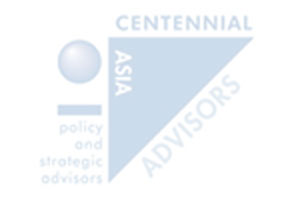- April 23, 2018
- Posted by: admin
- Category: Daily News
No Comments

- President Xi Jinping’s big push to curb pollution and excess capacity in steel and other industries is also consolidating his government’s control over them.
- Just in 2017, the state’s share of steel capacity increased to 67% from 60% while aluminum smelting saw about an equal increase, J Capital Research Ltd. estimates.
- In coal, which began consolidating years earlier, the government now controls 80% of capacity compared with about 45% in 2010, according to the Hong Kong-based firm.
- Xi’s campaign has boosted corporate profits, ended years of deflation, and stabilized debt growth to help underpin the first full-year economic acceleration in 2017 since 2010.
- But his aim for a “bigger, better and stronger” state role also means those bloated companies risk stifling private ones, as the Communist Party strengthens its grip on the economy.
- State gains in heavy industry follow a broad SOE comeback since Xi took power in 2013. Their share of fixed-asset investment stopped falling in 2014 and rebounded over the next three years.
- The state is also extending control over the private sector away from heavy industry as it cracks down on debt. Once-acquisitive insurer Anbang Insurance Group Co. was seized by the government, and regulators have curtailed the activities of conglomerates including Dalian Wanda Group Co. and HNA Group Co.
- Such consolidation may spur blowback from the U.S. and other countries. President Donald Trump already brands China a strategic rival, slapping tariffs on its goods and criticizing industrial policy for subsidizing state enterprises in a push to dominate tech sectors.
- While anti-pollution sweeps closed some private enterprises, state firms get a gentler touch. Jinan Steel, a unit of Shandong Iron and Steel Co. with about 20,000 employees, was shut in Jul 18. But many workers were moved to another unit. Premier Li Keqiang then visited to say that while closures hurt, the nation would work to ensure employees get new jobs.
- Total assets of central enterprises under the State-owned Assets Supervision and Administration Commission surged to RMB55tr (USD8.7tr) in 2017 from RMB10tr in 2005 as return on assets fell to 2.6% from as much as 7%.
- On the upside, air pollution improved in many cities in 2017 as small companies fouling the skies were shuttered. State companies often survived because, unlike private companies, they had the money to meet environmental regulations. The economic impact of a bloated state sector also may be contained if services and consumption continue to boost output.
- Consolidation continues. China’s cement association has said it will shutter 540 grinding companies in 2018 and allocate 60% of capacity to top producers by 2020, in line with a State Council order.
- The risk is short-term gains mean longer-term pain. The producer inflation boost already is easing, suggesting profits driven up by pricing power amid capacity cuts may soon weaken.
- 80% of steel capacity eliminated in 2016 and 2017 was at private steel mills while 75% of additions were at state enterprises. 88% of aluminum capacity eliminated in 2017 was in private companies and 75% of additions in state enterprises.
External Link : https://www.bloomberg.com/news/articles/2018-04-23/china-s-factory-crackdown-masks-a-sweeping-takeover-by-the-state
23-Apr-2018
